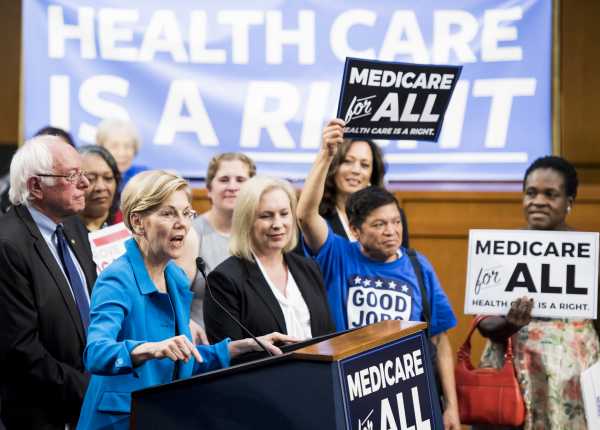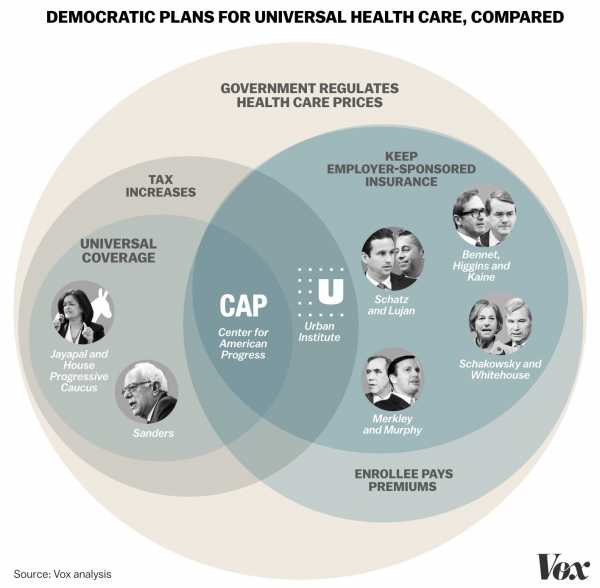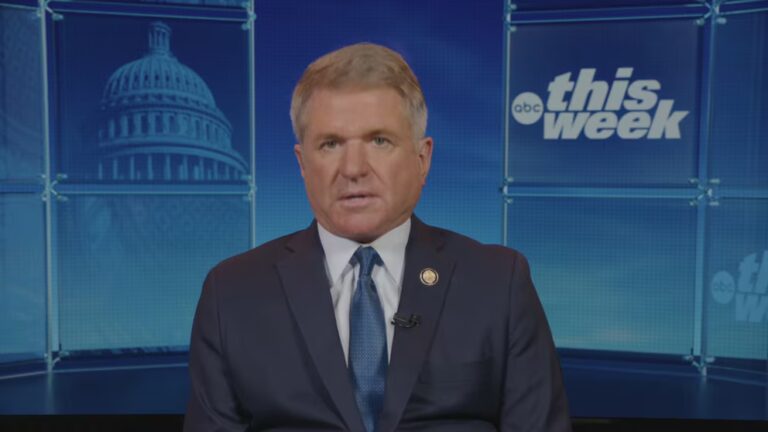
The Democrats running for president in 2020, while sharing a general goal of “expanding health coverage,” have two fundamental disagreements about health care.
One is on the policy: Would the best insurance system be one fully funded by the federal government? The Democrats who support Sen. Bernie Sanders’s Medicare-for-all bill are saying it is, while other candidates prefer to build more gradually on the public-private system we have now or openly running against the idea of single-payer.
The other debate is over strategy: Even if Democrats are lucky enough to win full control of the government in 2020, which is by no means guaranteed, should they try to enact another major health care overhaul? Or should they use their time, energy, attention, and political capital for other pursuits?
The delineations on policy are obvious as candidates come forward with their plans. The divisions on strategy are a little more speculative: Sanders’s supporters on the left have recently been suggesting Elizabeth Warren’s more circumspect approach on the timeline for Medicare-for-all, which she supports, means she isn’t as progressive as their favored candidate.
As the first debate approaches, the candidates are being delicate on health care, trying to signal their support for aspirational and broad goals like universal coverage. Most of them would rather not get bogged down in the devilish details — but as long as Sanders, an unreserved supporter for single-payer, is a major figure in the race, that will be difficult to do.
The actual policy disagreements Democrats have about health care reform
This month, House Democrats held a health care hearing about “paths to universal health coverage.” This is the story Democratic leadership wants to tell: The party agrees America should cover more people with public programs or subsidized private health insurance (or both). They are just looking for the best path forward.
“We all agree we need a stronger health care plan that covers everyone, universal coverage. We want everyone to have it,” Senate Democratic leader Chuck Schumer told Vox earlier this year. “We’ll figure out the best way to get there. … Different people have different views, we don’t attack each other. I think it’s great.”
But there are meaningful differences between the current left-of-center proposals. This Venn diagram covers the bills in Congress, written into real legislative text, and ideas from two prominent DC think tanks. On critical questions about whether the 150 million people who have employer-sponsored insurance should have access to a government plan, who else would be covered, and how much they would be asked to pay out of pocket for health care, the plans have notable differences. They do also have shared features.

Sanders wrote the single-payer bill in the Senate, which would move every American into one national insurance plan and would cover most medical services at zero cost when people go to the doctor or hospital. Warren and Sens. Kamala Harris (D-CA), Cory Booker (D-NJ), and Kirsten Gillibrand (D-NY) signed onto his Medicare for All Act. The Sanders plan is the most maximalist overhaul in the field, a nationalizing of the health insurance industry.
The Medicare for America bill, based largely on the work of the Center for American Progress (CAP) and Yale professor Jacob Hacker, would maintain the employer-based system that covers half of Americans right now. It would also, however, allow almost any American move to a government plan if they wanted to. Beto O’Rourke and Pete Buttigieg have shown support for that idea. They like to say they support Medicare “for all who want it,” a halfway point between single-payer and more limited public options.
Joe Biden has said he supports allowing “every single American” having access to a public insurance plan, but his campaign has not yet released the details on his proposal. In his record already: He called the Affordable Care Act “a big fucking deal” right after President Barack Obama signed it.
The more limited public options and buy-ins, like legislation sponsored by Sens. Amy Klobuchar (D-MN) and Michael Bennet (D-CO), would generally allow the 10 million people who buy private insurance on the Obamacare marketplaces to join a public plan instead if they pay a premium. People on company-funded plans would not be able to buy the public plan, limiting the size and impact of the program.
The health care debate is also a question of priorities and politics
But even Medicare-for-all-supporting candidates have sought out some wiggle room on the more difficult challenges presented by the single-payer plan. The Sanders bill would largely ban private health insurance. Yet Harris and Booker — both sponsors of it — have indicated at times on the campaign trail that they do see a role for private coverage.
The second question on this great New York Times survey of most of the 2020 candidates revealed some telling differences: Would your focus be improving the Affordable Care Act or replacing it with single-payer? Sanders took an absolutist tone.
“Clearly we need to replace it with a popular system, and that is Medicare, and expand Medicare to all,” Sanders said.
But another Medicare-for-all sponsor, Booker, pledged to pursue a public option first as president.
“I’m going to fight to try to expand access through things like creating a more vibrant, robust public option,” Booker said.
Warren gave a more guarded answer, not dissimilar from Harris’s general line on health care: Medicare-for-all should be the goal, but it’s something the country may have to build toward.
“There are a lot of different ways to get there,” Warren told the New York Times. “‘Medicare for all’ has a lot of different paths.”
Warren has an Obamacare improvement bill that, while not campaign stump speech material, would expand the federal subsidies available through Obamacare and extend them to more people. That plan would be one possible next step for her administration.
The activist and ideological left, for whom Sanders is such an important figure, have seized on Warren’s equivocation, contrasting it with her cultivated image as the bold “plan” candidate on other issues. From Tim Higginbotham’s essay in the socialist journal Jacobin, bearing the title “Elizabeth Warren Has a Plan for Everything — Except Health Care”:
As Vox’s Tara Golshan explained, Sanders and Warren are sometimes seen as so similar on policy that some people apparently have trouble telling them apart. Sanders’s side clearly sees health care as an opening to contrast them because their candidate says he is invested in passing Medicare-for-all as soon as possible.
Candidates have other plans they want to prioritize. Warren told Vox’s Ezra Klein the best place for her agenda to start is with an anti-corruption reform package. She’s been one of 2020’s trendsetting candidates on taxing the rich and expanding workers rights.
Harris, the next highest-polling Medicare-for-all sponsor, says she aspires to Medicare-for-all but has left room for leaving some kind of private insurance or incremental reforms. Her campaign also told me earlier this year that Harris’s tax plan would be at the top of her to-do list.
How much will these differences matter in 2020 and beyond?
Among Democrats, a tug-of-war exists between governing and ideology. Some Democrats think single-payer is the only acceptable answer if health care is a human right. Others are chastened by the recent and fierce fights over more limited reforms and want to instead focus on what is politically possible. The left’s theory is that incrementalists are too timid about what is achievable with the right message and the right plan.
“Medicare for all” polls well and health care is a unique issue: Americans broadly accept a role for the government in making sure people have health insurance. There are a lot of Medicare-for-all supporters in the Democratic Party now and among the people who vote in primaries. A recent survey of likely Iowa caucus-goers found about half said a candidate’s support for single-payer would be a “must-have” for them in 2020. That’s quite a few voters in such a crowded field.
Other polling indicates a lot of voters are still fuzzy on the details of Medicare-for-all, like whether it would get rid of private coverage. Support for the proposal still seems fluid, with push polls finding attacks on single-payer do significantly drive down support. The “must-have” number from the Iowa survey — 48 percent — reveals a lot of Democratic voters who aren’t making single-payer a deciding factor. Joe Biden, doing well with and focusing on the party’s older and moderate voters, is building his candidacy with voters like that.
Polling from public-opinion researcher Michael Perry, not done for any outside group, found Democratic voters saying that they would focus on improving Obamacare over passing single-payer in the near term. The Sanders wing is now questioning Warren’s commitment to Medicare-for-all, but so far, the 2020 polls show Warren and Sanders splitting voters who identify as progressive or liberal.
Still, health care reform has been politically challenging and historically an electoral loser, as Democrats and Republicans saw in 2010 and 2018, respectively. And whether Medicare-for-all can actually pass — or whether a more incremental option is the only thing that could clear a narrowly Democratic Senate with a solid cohort of centrist members — is a very different question. Sens. Joe Manchin of West Virginia and Kyrsten Sinema of Arizona, for starters, don’t sound onboard with single-payer right now. They just got elected for a barely-started six-year term.
A Sanders administration would also need a Democratic Senate to change the Senate’s procedural rules, which currently set a 60-vote threshold for most bills, to pass the best version of Medicare-for-all — and on that subject, eliminating the Senate filibuster, Sanders is actually more wary than Warren.
But there’s also a large chance this could all be moot. Democrats will need to be a little lucky to win the Senate at all. If they don’t, Senate Republican leader Mitch McConnell relishes the chance to block progressive — he’d call it “socialist” — legislation, as we’ve seen with a Democratic House. President Donald Trump has already called out “socialist” single-payer in his 2020 reelection launch speech.
It might seem strange for Democrats like Sanders and Warren who sponsor the same plan to be “debating” an issue. In this crowded field with a lot of policy overlap, campaigns are looking for every opening to stick out to voters.
But the party broadly does still has real differences not only on the best political path, but the right policy. Center-left Democrats really want to preserve a big role for private insurance. The candidates are asking elemental questions among themselves about the free market and the role it should have in providing health care to Americans.
Sourse: vox.com






